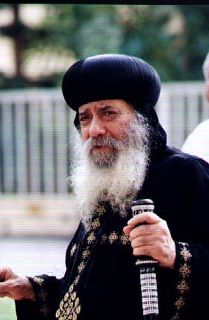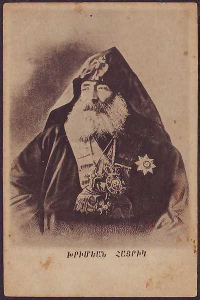In early August, as the movie “The Last Temptation of Christ” was about to be released, our community experienced one of our greatest losses. A young, innocent girl was taken away from us by cancer. The following article was written just prior to the release of the movie and in the aftermath of the suffering and pain that came with the tragedy of losing a dear and lovely child of God. I offer it here for our readers as a priest’s struggle with a cross and as a meditation on the Cross which we will celebrate September 11.
Early Sunday morning I was wakened by the phone call of a parishioner. Her daughter, 25, who was suffering from cancer was breathing her last at the hospital. As I raced to Santa Teresa Hospital many thoughts raced through my head, as they usually do at these moments.
At the hospital, a young, frail and tired girl looked at me with a last look of hope. She squeezed my hand to acknowledge my presence. The nurses asked me to leave the ICU ward as they placed more tubes into her nostrils. I came back into the room but now she was unconscious. The hand that only a few minutes ago had shown signs of life was now limp and cold. I offered some prayers and read scripture into her ear, not certain whether or not she heard. A few moments later it did not matter anymore. It was over. A young life, which had not experienced much of life, had ended.
And so begin the questions. Why? Why her? Why now? Why cancer at all? An injustice had been played out. It wasn’t fair. The wrong person was robbed. The deeper questions begin to surface: What is life all about? Did God take her life? Does God hear our prayers? And for me, as a priest, the role and purpose of my ministry is questioned. Is it fate? Is our destiny written out for us? If so, then what is my ministry all about? These are questions I have asked and continue to ponder. Philosophies have been written about these questions. Today many rational human beings continue to questions the nature and purpose of life. Many have rebelled against a seemingly silent God. Some have turned against God in this questioning. For the most part the questioning has been the vehicle by which many have come to know God.
Living through the last-minutes of a human being’s life awakens your senses which have become so dull from mundane day to day experiences. As you focus in on how delicate and fragile life is, it becomes increasingly more difficult to justify or be concerned with trivialities that consume so much of our time.
Over the past few months much controversy has revolved around the film “The Last Temptation of Christ.” The cries and worries of Christians increase as does my intolerance for their illogical and petty thinking. It is difficult for me to sympathize with these protesters. I do plan to see it, not because of all the controversy, nor because I am a proponent of First Amendment rights, nor because of the pre-opening hype by Universal Studios. Rather, my reasons for wanting to see the film are purely personal. The novel, by Nicholas Kazantzakis, on which the film is based was influential in my life and my decision to enter into the priesthood. I am interested to see how this imaginative yet powerful story has been adapted to film.
We’ve all played into the trap of the film’s promoters. It is comparable to the man who commits some heinous act of violence to gain publicity for himself. We know that that is his motive, yet we continue to broadcast the news. We make him the hero he set out to be. In the same manner, Universal seeks publicity for a movie. So why pay for it? Allow a select few to preview it. Provide sketchy script sheets to fuel the fires of controversy. Instant publicity! We know we are falling into their trap, but we go for it anyway.
The story by Kazantzakis is researched well and thought out. The crucified Messiah is given His “last temptation” on the cross. He is given the opportunity to see life beyond the cross, to know the joys of a family life, share memories with friends and live to a ripe old age. He is given the opportunity to have the same dreams as do all men and to be as all men. Yet he resists temptation. He says “no” to all the trappings of this world and opts to do His Father’s Will instead. I do not know how faithful the screen play is to the Kazantzakis novel but the story line is not offensive to me.
What some are objecting to is the portrayal of Jesus in an irreverent manner–that possibly He may have felt human feelings. In the movie, an actor playing Jesus Christ, is said to do all manner of things that are not befitting our image of a savior. He even has a sexual encounter with Mary Magdalene. Why are natural human emotions and feelings equated to frailty and signs of irreverence?
Underlying these protests is the fear of the freedom of expression and thought, not for the novelist but for ourselves. We are afraid to think and use the mind God has given us. Religion has become more or less an accept/reject proposition. “The Bible tells me so!” “My preacher says it, I believe it!” “I accepted the Lord!” We want to order and receive our religion as fast as we receive our Big Mac — with the same smiling service and even some change back for our efforts. Unfortunately, life is not that easy and neither are the answers religion supplies.
Karl Marx is correct in his assessment of religion being the opium of the people, not because it is, but because people use it as such. It is easier and quicker to grab that Big Mac than it is to sit at a nice restaurant, wait, order, wait and be served. But few would compare the quality of the meal. It is the same with religion. It is easier to grab a religion because of its convenience value, but of what quality will it be? Will it survive tests and temptation? Jesus’ religion did.
There is no sin in thinking. Questions must be asked. It is our one way of coming to terms with the inconsistencies and unfairness of life. Questioning is a means to spiritual growth. Jesus, in the Gospels, does not force us to follow Him. He gives us alternatives. He gives us food for thought. He allows us to think, to question and make the decision to follow Him.
A young man dies on a cross. A young girl dies in my arms on a bed in a cancer ward. A young man asks that the cup pass away. A young girl asks for another cup of water. We must ask, why the cross? I must ask, why cancer? Why her? These questions do not alienate us from God, but grant us a closer relationship. We struggle and suffer for those answers but the solutions are there, and their enduring power is ever so heightened when reached through struggle. Jesus is tempted with life beyond the cross. We are tempted daily with life beyond our crosses. The difference is that we succumb to temptation. We opt for the “better” life. We want better houses, bigger cars. We chose to pollute our environment with the threat of unhealthy life. We continue to kill for the sake of peace. We do not say no to the trappings of life.
With the problems and pains in this world, it seems trivial and a waste of energy for so many Christians to be protesting a movie. Are they truly scared that in questioning some may lose their faith? Rather than direct their protests toward the idea of God living as man, perhaps some of that energy can be spent in protesting man living as God. Where are the protests when the shoot-em-up Rambo movies are released? Where are the protesters when the environment is polluted? Where are the cries of protest as we escalate military spending and allow our homeless to rot in the streets? Yes, there are protesters, but I doubt they are the same ones who protest this movie.
The movie, “The Last Temptation of Christ” is a temptation for all of us. Some may resist, some may seek it. If it grants us the opportunity to think then it has done enough. It has raised us from the levels of acceptance to thought, which is the true role and use of religion.
-Fr. Vazken, Nakhagoch August 1988







